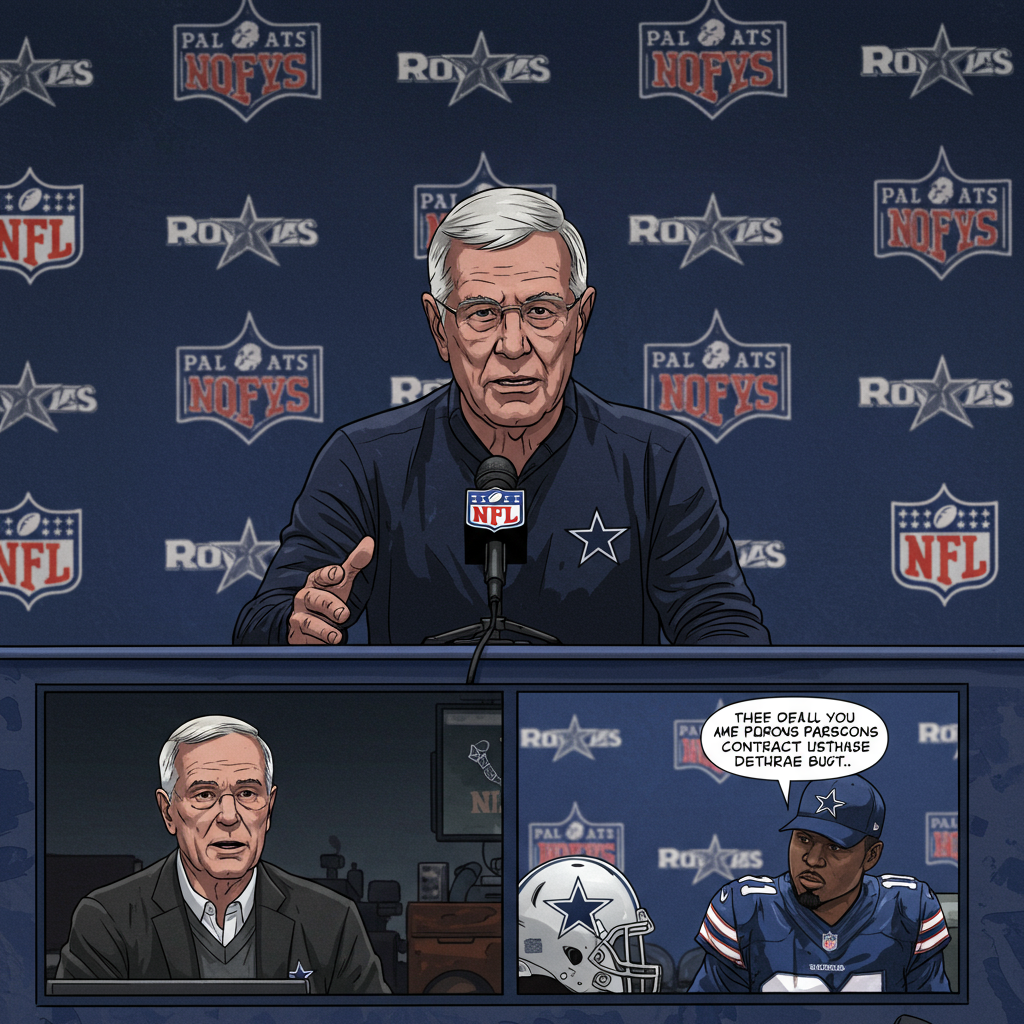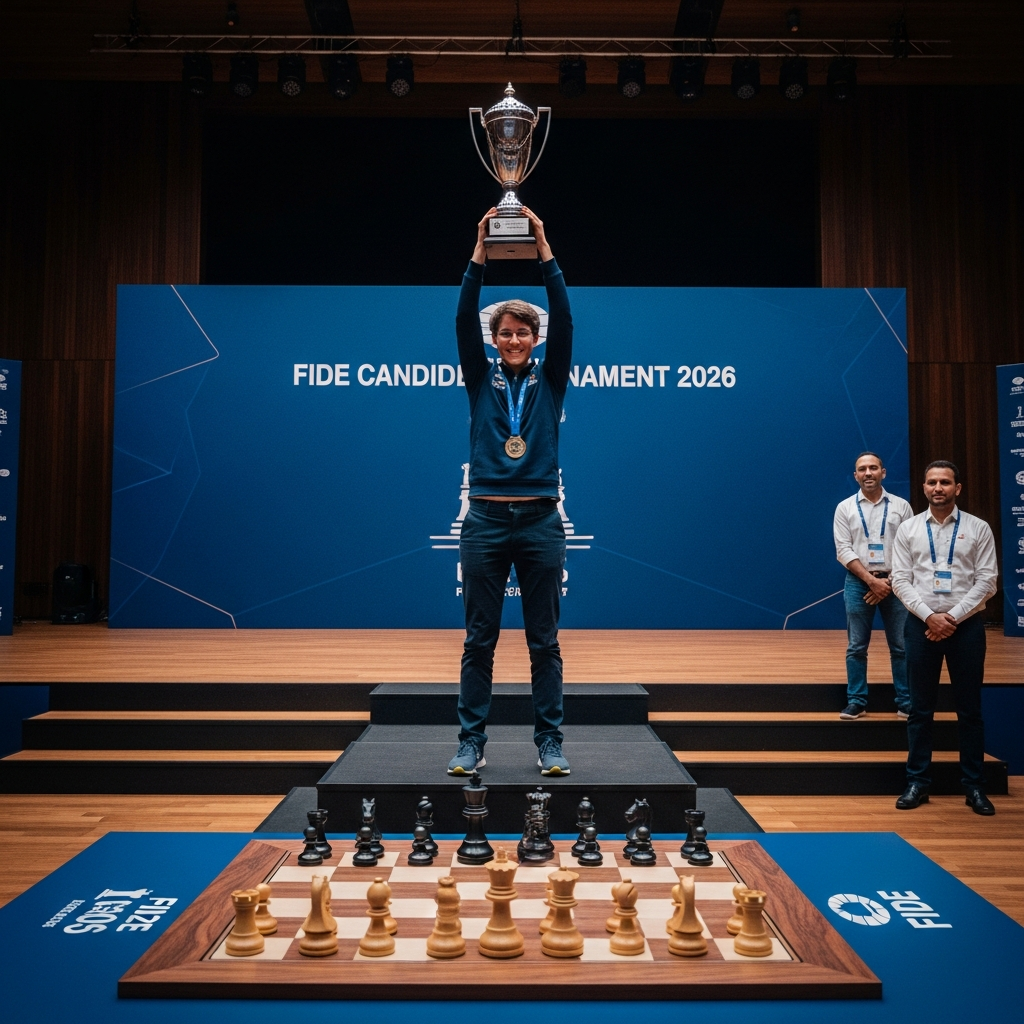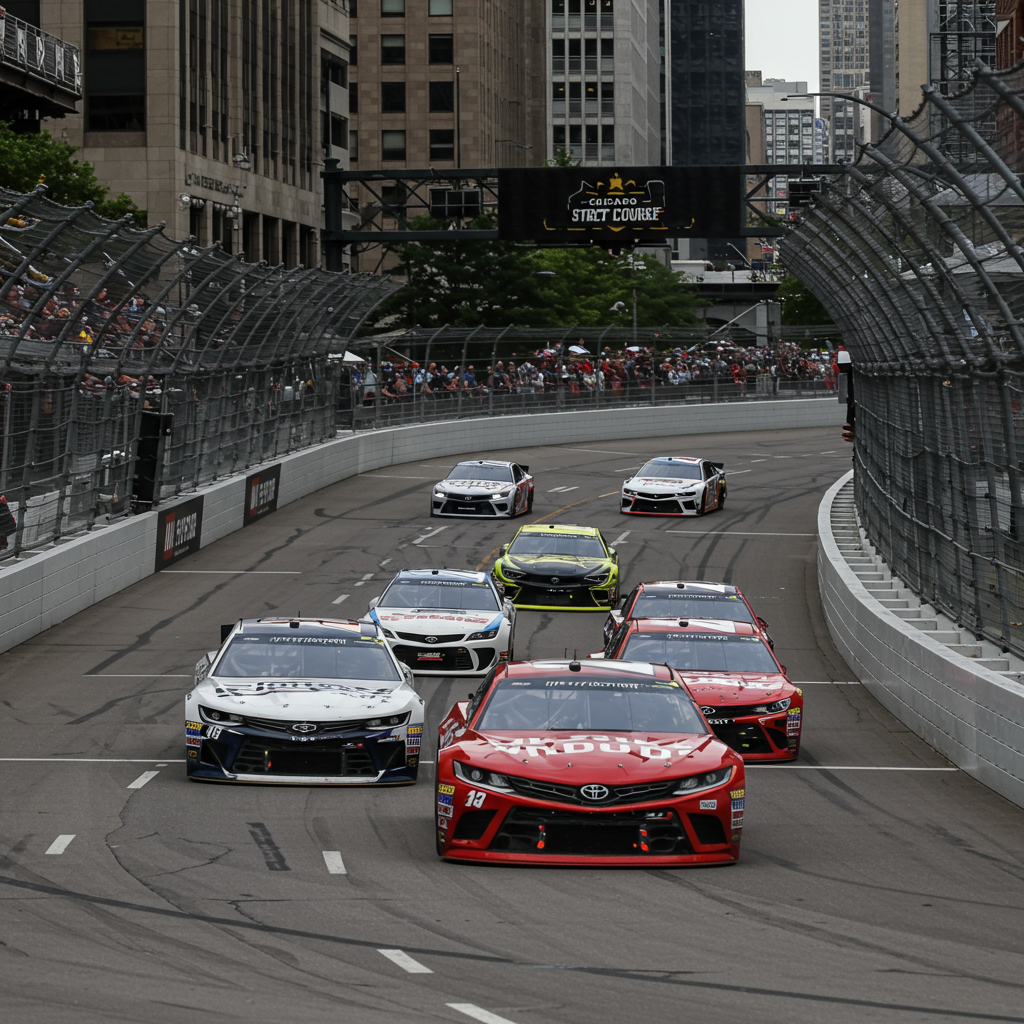Dallas Cowboys owner Jerry Jones has ignited a firestorm, publicly alleging that a landmark contract deal with star linebacker Micah Parsons was derailed by his agent. This bold claim has plunged the Cowboys into a dramatic NFL contract dispute, sparking fervent denials and raising questions about negotiation ethics in professional sports. At stake is the future of one of the league’s most dominant defensive players and the strategic direction of “America’s Team.” The saga highlights the complex power dynamics between owners, players, and agents, with significant implications for the Dallas roster and its Super Bowl aspirations.
The Allegation Unfolds: A High-Stakes Impasse
Speaking on Cowboys legend Michael Irvin’s YouTube show, Jerry Jones dropped a bombshell. He claimed direct negotiations with Micah Parsons had led to a verbal agreement. This proposed deal, Jones asserted, encompassed the contract length, total financial value, and critical guaranteed money. He even stated that the terms would have established Parsons as the highest-paid non-quarterback in NFL history based on guaranteed money. Jones emphasized that the substantial offer would unequivocally demonstrate his profound desire to retain Parsons and his respect for the player’s unparalleled contributions to the team.
However, this promising agreement, according to Jones, unraveled dramatically when Parsons’ agent, David Mulugheta, intervened. Jones recounted that when the Cowboys attempted to formalize the details by sending the offer to Mulugheta, the agent allegedly delivered a highly dismissive and vulgar rejection. Jones’s account suggests he considered the negotiation largely settled after his direct talks. He views Mulugheta’s subsequent actions as an attempt to “improve off the mark that we’d already set,” injecting a new layer of friction into an already sensitive situation.
Agent Fires Back: A Battle of Narratives
In a swift and fiery rebuttal, David Mulugheta vehemently denied Jones’s accusations. Speaking to ESPN’s Ryan Clark, Mulugheta explicitly refuted using the offensive phrase attributed to him, dismissing Jones’s entire account as “false.” This direct contradiction sets up a compelling “he said, he said” scenario, where the veracity of each side’s claims is under intense scrutiny.
Micah Parsons himself has also offered a differing perspective. The star pass rusher maintained that his direct conversations with Jerry Jones were not formal contract negotiations. He consistently desired and expected his agent, Mulugheta, to be intimately involved in all official contractual discussions. This stance underscores the fundamental disagreement over how these high-stakes negotiations should be conducted. Parsons’ insistence on his agent’s presence highlights a common player desire for professional representation in complex financial dealings, potentially clashing with Jones’s traditional approach.
A History of Direct Deals: Jones’s Maverick Approach
Jerry Jones, known for his hands-on management style, has a long-standing history of direct engagement with players. He openly defended his negotiation tactics, stating, “I’ve done most of my negotiating without an agent in the rooms.” Jones emphasized that agents are typically not involved in other team-related matters, which are handled internally with “just us.” This perspective positions agents as peripheral to the core team-player relationship, a view that often contrasts with the modern NFL landscape.
This direct approach, while sometimes successful, can also lead to misunderstandings and disputes, especially when significant money is on the table. Jones views his ability to speak directly with players as a strength, fostering personal connections and streamlining the negotiation process. However, for a player like Micah Parsons, who explicitly stated a desire for his agent’s involvement, this directness can be perceived as an attempt to bypass professional counsel, creating mistrust. The conflict illuminates a philosophical divide in how such critical player relationships should be managed within a multi-billion dollar enterprise like the Dallas Cowboys.
Micah Parsons’ Future: Contract Demands & On-Field Presence
The highly anticipated Micah Parsons contract extension remains unresolved as he enters the final year of his rookie deal, set to earn $24 million. Reports indicate Parsons is seeking a new deal worth a substantial $40 million per year or more. This figure would place him among the NFL’s elite earners, a testament to his exceptional performance as a two-time All-Pro defensive end with over 52 sacks in his first four seasons.
Amid the contract stalemate, Parsons has been observed participating in his usual sideline appearances at training camp but has largely sat out drills. While he has cited a back injury as the reason, this “hold-in” status is a common tactic for players seeking new contracts. Hours after Jones’s interview was released, Parsons dramatically removed all references to the Cowboys from his social media profiles—a move widely interpreted as a clear sign of his dissatisfaction. Further escalating the situation, Parsons reportedly submitted a trade request on August 1, 2025, expressing feelings of being “ignored and hurt” by the team. Despite the drama, first-year head coach Brian Schottenheimer remains confident Parsons will play in the Sept. 4 season opener against the Philadelphia Eagles, with or without an extension.
Expert Insight: Why a Trade is Unlikely
Despite Micah Parsons’ trade request and the public friction, former NFL General Manager Doug Whaley, who led the Buffalo Bills from 2013-2017, strongly believes a trade is highly improbable. Whaley, now in the UFL, shared his conviction with TMZ Sports, stating that “Guess what gets everybody on the same page? The dollars.” He points to historical parallels with other elite NFL pass rushers like Myles Garrett and T.J. Watt, whose contentious contract negotiations ultimately concluded with lucrative new deals, keeping them with their respective teams. This perspective highlights the pragmatic reality that top-tier talent often receives the compensation they desire, regardless of initial disputes.
Jerry Jones has also vehemently dismissed any trade rumors as “BS,” reiterating his unwavering intention to keep Parsons in Dallas. The Cowboys possess significant leverage, including the contractual option to franchise tag Parsons through the 2027 season. This powerful tool provides a safeguard against his departure, allowing the team to retain his services even if a long-term deal isn’t immediately struck. These factors combined suggest that while the Micah Parsons contract saga is dramatic, a trade is a long shot, with a substantial new deal remaining the most likely outcome.
The Bigger Picture: Dallas’s Legacy & Long-Term Strategy
The ongoing Jerry Jones Parsons deal saga is unfolding against a backdrop of heightened media attention for the Dallas Cowboys, notably with the recent Netflix docuseries “America’s Team: The Gambler and His Cowboys.” This spotlight only intensifies the pressure on both parties to find a resolution. Jones himself drew a comparison to the protracted negotiations with quarterback Dak Prescott, who was franchise tagged twice before ultimately signing a massive extension. This suggests a willingness by the Cowboys to play the long game, even if it means enduring public acrimony and player frustration.
Jones views the situation as “resolved” from the Cowboys’ perspective, having put a substantial offer on the table. He contends that “the ball is in Parsons and Mulugheta’s court” to finalize the details. This assertiveness underscores Jones’s belief in the team’s position and the value he places on Parsons, while also implying a warning against a holdout, which would be “very costly” for all involved. Ultimately, the successful resolution of this NFL contract negotiation is critical for the Cowboys’ immediate competitiveness and their long-term vision, ensuring their star pass rusher remains a cornerstone of the franchise.
Frequently Asked Questions
What are the core disagreements between Jerry Jones and Micah Parsons’ agent regarding the contract?
The central conflict revolves around two main points. First, Jerry Jones claims he reached a verbal agreement directly with Micah Parsons on key contract terms, which Parsons’ agent, David Mulugheta, strongly denies. Mulugheta asserts Jones’s account is “false” and refutes allegations of using a vulgar phrase to reject the deal. Second, Parsons himself stated his direct conversations with Jones were not negotiations and that he consistently desired his agent’s involvement, directly clashing with Jones’s preference for direct player dealings.
What is Micah Parsons’ current contract status and what are his reported demands?
Micah Parsons is currently entering the final year of his rookie contract with the Dallas Cowboys, where he is set to earn $24 million. He is reportedly seeking a significant contract extension valued at more than $40 million per year. This desired extension would likely make him one of the highest-paid non-quarterback players in NFL history, reflecting his elite performance and value to the team as a dominant pass rusher.
Is a trade for Micah Parsons likely given the ongoing dispute?
Despite Micah Parsons’ reported trade request and the public contract dispute, a trade appears highly unlikely. Former NFL GM Doug Whaley and Jerry Jones himself have vehemently dismissed trade rumors, with Whaley citing the power of financial incentives to resolve such impasses. The Cowboys also possess significant leverage, including the ability to franchise tag Parsons through the 2027 season, which gives them control over his playing rights for several more years, making a trade a very remote possibility.
The Dallas Cowboys are set to play their final preseason game against the Atlanta Falcons, while the spotlight remains intensely fixed on Micah Parsons and his contractual future. This ongoing saga is more than just a negotiation; it’s a test of wills and strategies. The coming weeks will reveal if Jerry Jones’s assertive approach or Parsons’ and Mulugheta’s demands will ultimately prevail, shaping the immediate future of one of the NFL’s most valuable defensive assets and the identity of “America’s Team.”



